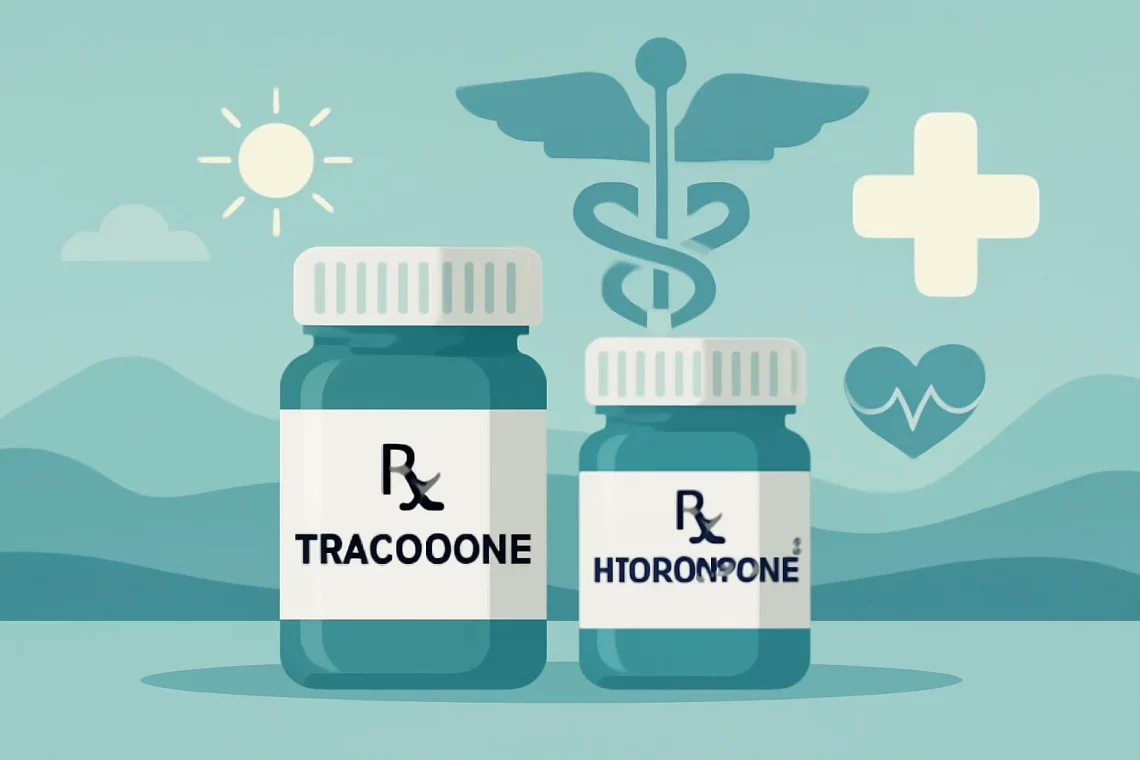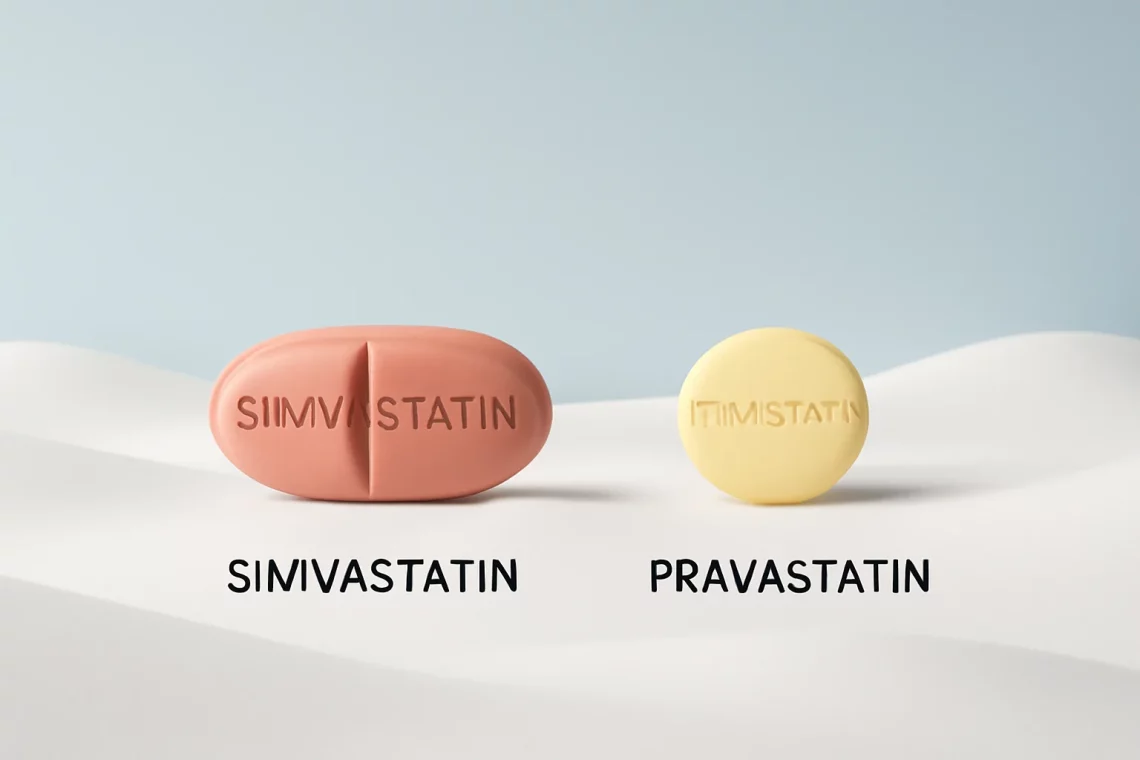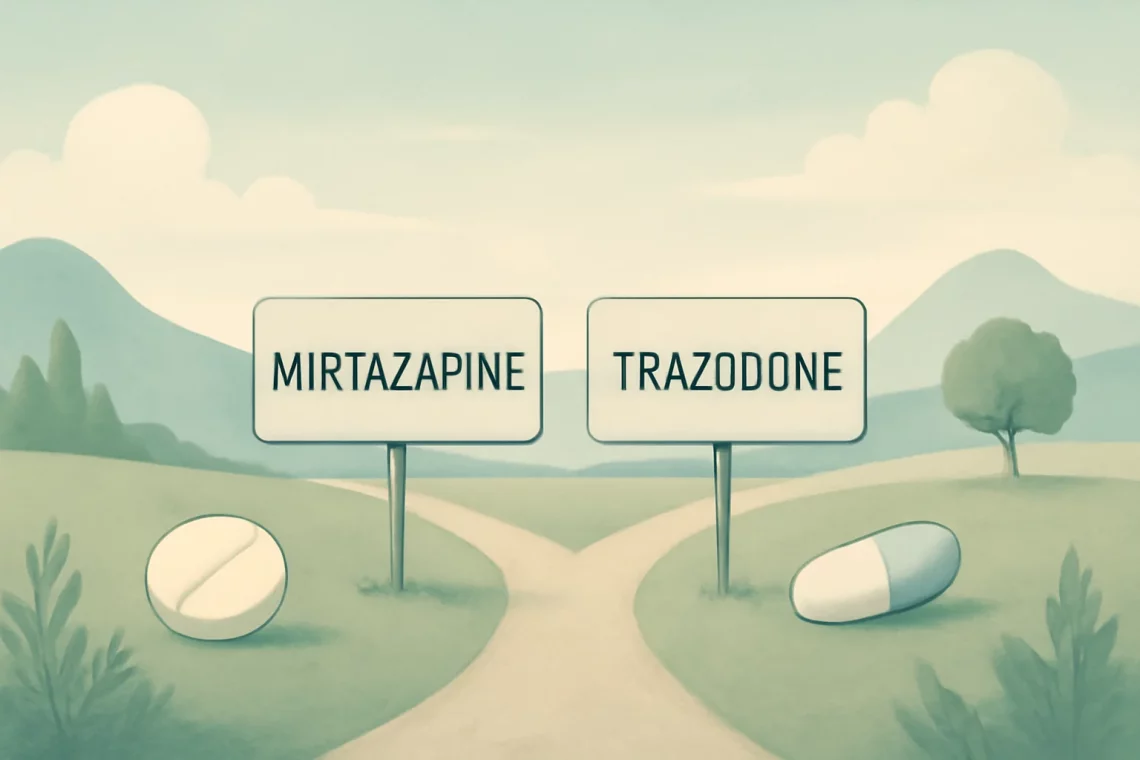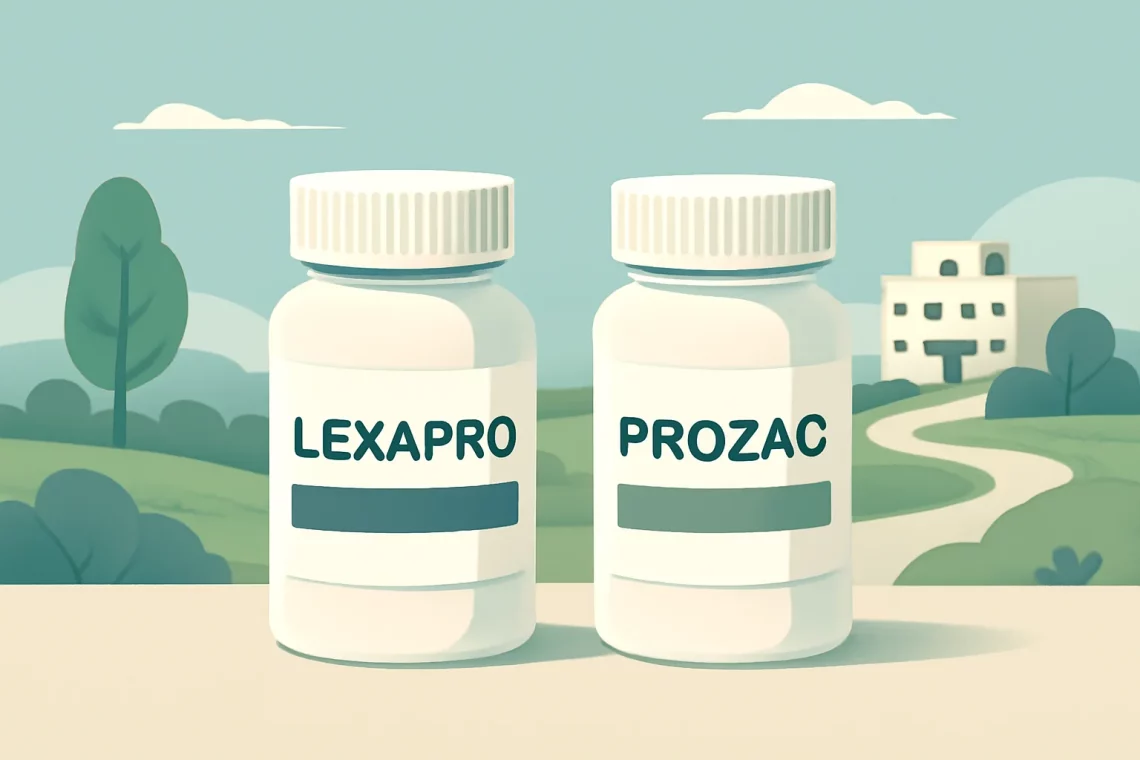-
Trazodone vs Hydroxyzine: Which is Better for Your Needs?
The distinction between various medications can often be a complex and daunting task, especially when it comes to understanding their specific uses, effects, and potential side effects. As our understanding of mental health and wellness evolves, so too does the array of pharmacological options available to those seeking relief from conditions such as anxiety, depression, and insomnia. Two medications that frequently come up in discussions around treatment options are Trazodone and Hydroxyzine. These drugs, while both used to treat anxiety and sleep disorders, belong to different classes and have unique mechanisms of action. Trazodone is primarily known as an antidepressant, but it is also often prescribed off-label for insomnia due…
-
Simvastatin vs Pravastatin: Which Statin Is Right for You?
Cholesterol management is a vital aspect of maintaining heart health, especially in an age where lifestyle diseases are on the rise. Among the various medications available to manage cholesterol levels, statins are among the most commonly prescribed. Simvastatin and pravastatin are two prominent members of this drug class, known for their effectiveness in lowering low-density lipoprotein (LDL) cholesterol, often referred to as “bad” cholesterol. Both medications work by inhibiting an enzyme that plays a central role in cholesterol production in the liver, thus helping reduce the overall cholesterol levels in the bloodstream. Understanding the nuances between simvastatin and pravastatin can empower patients and healthcare providers to make informed decisions tailored…
-
Mirtazapine vs Trazodone: Which Antidepressant is Right for You?
Mirtazapine and trazodone are two medications commonly prescribed for mental health conditions, particularly for anxiety and depression. In recent years, there’s been growing awareness of the mental health crisis affecting individuals globally, leading to increased discussions about the most effective treatment options. Both mirtazapine and trazodone function as antidepressants, but they have distinct mechanisms of action and side effect profiles, which can influence a physician’s choice based on individual patient needs. As the stigma around mental health continues to diminish, more people are seeking help and exploring various treatment avenues. This shift in attitude has prompted patients and healthcare providers alike to delve deeper into the pros and cons of…
-
Duloxetine vs Venlafaxine: Which Antidepressant is Right for You?
Duloxetine and venlafaxine are two medications commonly used to treat various mental health conditions, particularly depression and anxiety disorders. Both belong to the class of drugs known as serotonin-norepinephrine reuptake inhibitors (SNRIs), which work by increasing the levels of certain neurotransmitters in the brain. These medications are often prescribed when patients do not respond to selective serotonin reuptake inhibitors (SSRIs) or when their symptoms require a broader approach to treatment. The choice between duloxetine and venlafaxine can be challenging for both healthcare providers and patients. Factors such as the specific symptoms being treated, the side effect profiles of the medications, and individual patient responses can all influence this decision. Additionally,…
-
Meloxicam vs Piroxicam: Which Anti-Inflammatory Drug is Better?
Meloxicam and piroxicam are two widely used nonsteroidal anti-inflammatory drugs (NSAIDs) that play significant roles in the management of pain and inflammation. Both medications are commonly prescribed for conditions such as arthritis, muscle pain, and other inflammatory disorders. Their effectiveness in alleviating pain makes them popular choices among healthcare providers, but they differ in their chemical structures, mechanisms of action, and potential side effects. Understanding these differences is crucial for patients and healthcare professionals alike, as it can influence treatment decisions and patient outcomes. In the realm of pain management, the choice between meloxicam and piroxicam is often dictated by the specific needs of the patient, including their medical history,…
-
Clonazepam vs Ativan: Understanding Their Differences and Uses
Clonazepam and Ativan are two medications that fall under the category of benzodiazepines, which are widely prescribed for their sedative, anti-anxiety, and muscle-relaxing properties. These medications have gained prominence for their effectiveness in treating various mental health conditions, including anxiety disorders, panic attacks, and seizures. The rise in the prescription of benzodiazepines has led to a growing interest in understanding the differences and similarities between Clonazepam and Ativan, especially among those seeking relief from anxiety and related disorders. As the demand for effective treatment options increases, patients and healthcare providers alike are keen to compare these two medications. While both Clonazepam and Ativan can provide significant benefits, they also come…
-
Meloxicam vs Ibuprofen: Which Pain Reliever Is Right for You?
In the realm of pain relief and inflammation management, Meloxicam and Ibuprofen are two commonly used nonsteroidal anti-inflammatory drugs (NSAIDs) that serve as effective options for many individuals. Both medications are prevalent in treating various conditions, including arthritis, muscle pain, and other inflammatory disorders. While they share similarities in their mechanisms of action, their differences can significantly influence their suitability for different patients and conditions. Understanding these distinctions is crucial for making informed decisions about pain management and overall health. Meloxicam, often prescribed for chronic inflammatory conditions, is known for its long half-life, allowing for once-daily dosing. On the other hand, Ibuprofen is a familiar over-the-counter option that is widely…
-
Cymbalta vs Savella: A Comprehensive Comparison of Two Medications
Cymbalta and Savella are two medications frequently discussed in the context of treating chronic pain and mood disorders. Both belong to a class of drugs known as serotonin-norepinephrine reuptake inhibitors (SNRIs), which are designed to help regulate the levels of serotonin and norepinephrine in the brain. These neurotransmitters play crucial roles in mood regulation and pain perception, making these medications valuable tools in managing conditions such as fibromyalgia, anxiety disorders, and major depressive disorder. Despite their similar mechanisms of action, Cymbalta and Savella are prescribed for different indications and can have varying effects on patients. Understanding the distinctions between these two medications is essential for patients and healthcare providers alike.…
-
Lexapro vs Prozac: A Comprehensive Comparison of Two Antidepressants
Depression and anxiety are two of the most common mental health disorders affecting millions of individuals worldwide. As awareness of mental health issues has grown, so too has the range of treatment options available. Among these options, selective serotonin reuptake inhibitors (SSRIs) have gained prominence for their efficacy in treating depression and anxiety-related disorders. Lexapro and Prozac are two of the most well-known SSRIs prescribed by healthcare professionals. While both medications aim to balance serotonin levels in the brain, their formulations and specific uses can vary significantly. Understanding the differences between Lexapro and Prozac is crucial for patients seeking effective treatment for mental health issues. Factors such as side effects,…
-
Citalopram vs Paxil: Understanding the Key Differences and Uses
Citalopram and Paxil are two medications frequently discussed in the context of mental health treatment, particularly for conditions such as depression and anxiety disorders. Both belong to a class of drugs known as selective serotonin reuptake inhibitors (SSRIs), which are designed to increase serotonin levels in the brain. This enhancement of serotonin activity is thought to improve mood and emotional balance. The choice between citalopram and Paxil often raises questions among patients and healthcare professionals alike, as each drug has its own unique profile of benefits and potential side effects. While both medications aim to alleviate symptoms of mental health disorders, they can differ significantly in their effectiveness, tolerability, and…







































